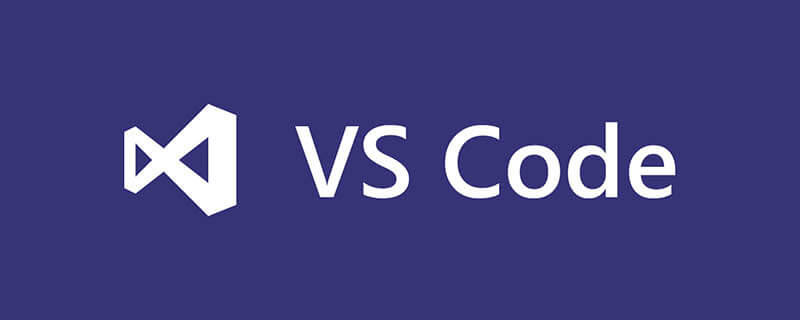return means "return" in C language. Return means to transfer the program flow from the called function to the calling function and bring the value of the expression back to the calling function to realize the return of the function value. The return can be accompanied by a return value, which is specified by the parameter after return.

Function is the basic component of C language. A C program can be composed of a main function and several subroutine functions. The main function calls other subroutine functions. Other subroutine functions can also call each other. It is usually hoped that the main function can get a certain value through function calls, which is the return value of the function.
In C language, the modular programming idea is realized through functions, that is, functions are used to define the functional modules, and then the program functions are realized through calls between functions. Therefore, the function has a calling function and a called function.
Parameters are the interface for information communication between the calling function and the called function. In the definition and description statement of the function, we call the parameters in parentheses after the function name formal parameters, or "formal parameters" for short. In the calling statement of the calling function, the parameters used in parentheses after the function name are called actual parameters, or "actual parameters" for short.
When the function is called, the actual parameters must pass data to the formal parameters. After the function is called and completes a certain function, some data must also be returned to the calling function.
return means to transfer the program flow from the called function to the calling function and bring the value of the expression back to the calling function to realize the return of the function value. The return can be accompanied by a return value, as shown by return The following parameters are specified.
Return is usually necessary because the calculation result is usually brought out through the return value when the function is called. If the function execution does not need to return calculation results, it is often necessary to return a status code to indicate whether the function is executed smoothly or not (-1 and 0 are the most commonly used status codes). The calling function can judge the execution of the called function through the return value. Condition.
The meaning of return
In a function, if a return statement is encountered, the program will return to the next statement that calls the function, that is to say, jump out of the function of execution, return to the original place and continue execution. But if the return statement is encountered in the main function, the entire program will stop and exit the execution of the program.
The return value of the function is realized by the return statement return. The last operation performed by the function is return. The meaning of return is:
(1) The subroutine function returns to the calling function and declares When an execution of the function ends, the variable unit allocated during the call is revoked;
(2) Send the function value to the calling expression. Of course, this is not necessary because some functions have return values. Some functions have no return value.
return Function 1
means return. This program can be ended without parameters. If your member runs here, you will not run it further. , you can add a return statement and it will not be executed again.
return Function 2
Return the value of the specified type. When defining the function, there is not int af();int. Here is the return value, followed by return. This return value can be assigned to other variables after this function is executed, and its value is the value after return.
For more related knowledge, please visit: PHP Chinese website!
The above is the detailed content of What does return mean in c language. For more information, please follow other related articles on the PHP Chinese website!
 (超详细)VScode中配置C语言环境的方法Dec 05, 2022 pm 07:05 PM
(超详细)VScode中配置C语言环境的方法Dec 05, 2022 pm 07:05 PMVScode中怎么配置C语言环境?下面本篇文章给大家介绍一下VScode配置C语言环境的方法(超详细),希望对大家有所帮助!
 C语言return的用法详解Oct 07, 2023 am 10:58 AM
C语言return的用法详解Oct 07, 2023 am 10:58 AMC语言return的用法有:1、对于返回值类型为void的函数,可以使用return语句来提前结束函数的执行;2、对于返回值类型不为void的函数,return语句的作用是将函数的执行结果返回给调用者;3、提前结束函数的执行,在函数内部,我们可以使用return语句来提前结束函数的执行,即使函数并没有返回值。
 c语言中node是什么意思Jul 06, 2022 pm 03:51 PM
c语言中node是什么意思Jul 06, 2022 pm 03:51 PM在C语言中,node是用于定义链表结点的名称,通常在数据结构中用作结点的类型名,语法为“struct Node{...};”;结构和类在定义出名称以后,直接用该名称就可以定义对象,C语言中还存在“Node * a”和“Node* &a”。
 c语言怎么将数字转换成字符串Jan 04, 2023 pm 03:20 PM
c语言怎么将数字转换成字符串Jan 04, 2023 pm 03:20 PMc语言将数字转换成字符串的方法:1、ascii码操作,在原数字的基础上加“0x30”,语法“数字+0x30”,会存储数字对应的字符ascii码;2、使用itoa(),可以把整型数转换成字符串,语法“itoa(number1,string,数字);”;3、使用sprintf(),可以能够根据指定的需求,格式化内容,存储至指针指向的字符串。
 c语言数组如何初始化Jan 04, 2023 pm 03:36 PM
c语言数组如何初始化Jan 04, 2023 pm 03:36 PMC语言数组初始化的三种方式:1、在定义时直接赋值,语法“数据类型 arrayName[index] = {值};”;2、利用for循环初始化,语法“for (int i=0;i<3;i++) {arr[i] = i;}”;3、使用memset()函数初始化,语法“memset(arr, 0, sizeof(int) * 3)”。
 Java中return和finally语句的执行顺序是怎样的?Apr 25, 2023 pm 07:55 PM
Java中return和finally语句的执行顺序是怎样的?Apr 25, 2023 pm 07:55 PM源码:publicclassReturnFinallyDemo{publicstaticvoidmain(String[]args){System.out.println(case1());}publicstaticintcase1(){intx;try{x=1;returnx;}finally{x=3;}}}#输出上述代码的输出可以简单地得出结论:return在finally之前执行,我们来看下字节码层面上发生了什么事情。下面截取case1方法的部分字节码,并且对照源码,将每个指令的含义注释在
 c语言中源文件编译后生成什么文件Nov 23, 2022 pm 07:44 PM
c语言中源文件编译后生成什么文件Nov 23, 2022 pm 07:44 PMc语言编译后生成“.OBJ”的二进制文件(目标文件)。在C语言中,源程序(.c文件)经过编译程序编译之后,会生成一个后缀为“.OBJ”的二进制文件(称为目标文件);最后还要由称为“连接程序”(Link)的软件,把此“.OBJ”文件与c语言提供的各种库函数连接在一起,生成一个后缀“.EXE”的可执行文件。
 c语言中*p和p的区别是什么Nov 29, 2022 pm 06:03 PM
c语言中*p和p的区别是什么Nov 29, 2022 pm 06:03 PM区别:1、表示的含义不同,“*p”表示此指针指向的内存地址中存放的内容,“p”表示一个指针变量的名字,指此指针变量所指向的内存地址。2、输出的格式不同,“*p”输出的一般是一个和指针类型一致的变量或者常量,“p”输出的是一个16进制数, 输出一个指针的地址。3、功能不同,“*p”是让程序去那个地址取出数据,“p”用于存放的是地址。


Hot AI Tools

Undresser.AI Undress
AI-powered app for creating realistic nude photos

AI Clothes Remover
Online AI tool for removing clothes from photos.

Undress AI Tool
Undress images for free

Clothoff.io
AI clothes remover

AI Hentai Generator
Generate AI Hentai for free.

Hot Article

Hot Tools

SublimeText3 Linux new version
SublimeText3 Linux latest version

WebStorm Mac version
Useful JavaScript development tools

Dreamweaver CS6
Visual web development tools

SAP NetWeaver Server Adapter for Eclipse
Integrate Eclipse with SAP NetWeaver application server.

SublimeText3 Chinese version
Chinese version, very easy to use






